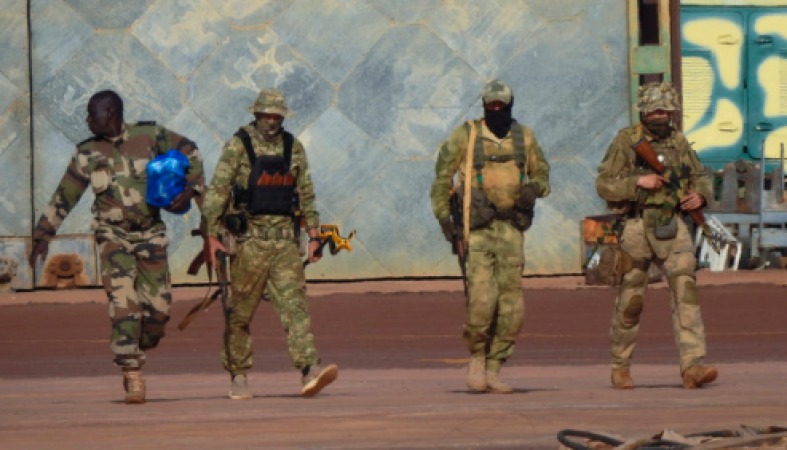
UNO: Russia has affirmed its commitment to supporting Mali despite the recent demise of Dmitri Utkin, also known as Wagner, the chief of the Wagner Group. Utkin was killed in a clash with Islamist militants in late August.
The Wagner Group, a private military contractor with alleged ties to the Russian government, has been implicated in human rights abuses across various nations, including Mali.
The Wagner Group's involvement in Mali has sparked significant controversy due to its alleged violations of human rights, including the targeting of civilians. While the Malian government has denied these allegations, they have been corroborated by independent human rights organizations.
Also Read: Putin's Chef" Prigozhin's Funeral: A Significant Absence Raises Questions
Utkin's death, although a setback for the Wagner Group, raises questions about the group's future operations in Mali. Despite his demise, the group's substantial presence in the country indicates that it will likely continue to play a role in the ongoing conflict.
Amidst the uncertainty, Russia's commitment to assisting Mali against terrorism is noteworthy. Maria Zakharova, the spokeswoman for the Russian Foreign Ministry, stated that they would persist in providing support to Mali's legitimate authorities in their counterterrorism efforts.
Malian government spokesperson Abdoulaye Maïga echoed this sentiment, asserting the nation's intention to collaborate with partners, including the Wagner Group, in their fight against terrorism.
The determination of both Russia and Mali to maintain their partnership underscores the intricate web of geopolitics, even in the face of international criticism and controversy. Russia's willingness to stand by Mali despite the Wagner Group's tarnished reputation exemplifies its strategic commitment to retaining influence in the country.
Also Read: Russia Claims Intercepting Two US Drones Near Crimea Amid Escalating Tensions
The Wagner Group's association with alleged human rights abuses has prompted condemnation from the United States and the European Union. Both entities have urged the Malian government to expel the group from the nation. Nevertheless, Mali has thus far resisted these calls, resulting in strained relations between the Western powers and the Malian government.
Russia's decision to continue supporting Mali, even amid international disapproval, is poised to exacerbate tensions between Russia and the West. This underscores the broader geopolitical contest for influence in regions where competing interests intersect, each party vying to assert its agenda.
As the conflict in Mali persists, the dynamics between the Malian government, the Wagner Group, and international actors remain fluid. The spotlight on Utkin's death and the Wagner Group's presence highlights the complex interplay between state interests, private military contractors, and global politics.
It is important to acknowledge that the Wagner Group's operations are mired in secrecy and ambiguity, often blurred by connections to state actors and covert agendas. This complexity further complicates efforts to predict the group's trajectory and impact on Mali's internal dynamics.
The continuing assistance from Russia and the collaboration between the Malian government and the Wagner Group exemplify the multifaceted nature of geopolitical strategies and alliances.
Also Read: Powerful Earthquakes Rock Bali and Java Islands, Miraculously No Fatalities Reported
The Wagner Group's involvement in Mali, coupled with Russia's unwavering support, continues to shape the narrative of a nation grappling with internal strife and external pressures.
In conclusion, Russia's commitment to aiding Mali following the demise of Wagner Group's chief reflects the intricate interplay between geopolitics, state interests, and international partnerships. Utkin's death, the Wagner Group's contested presence, and Russia's persistence in supporting Mali underscore the complexities of contemporary conflicts.
As the global stage continues to evolve, the fate of Mali remains intertwined with competing agendas, a situation emblematic of the broader geopolitical landscape.